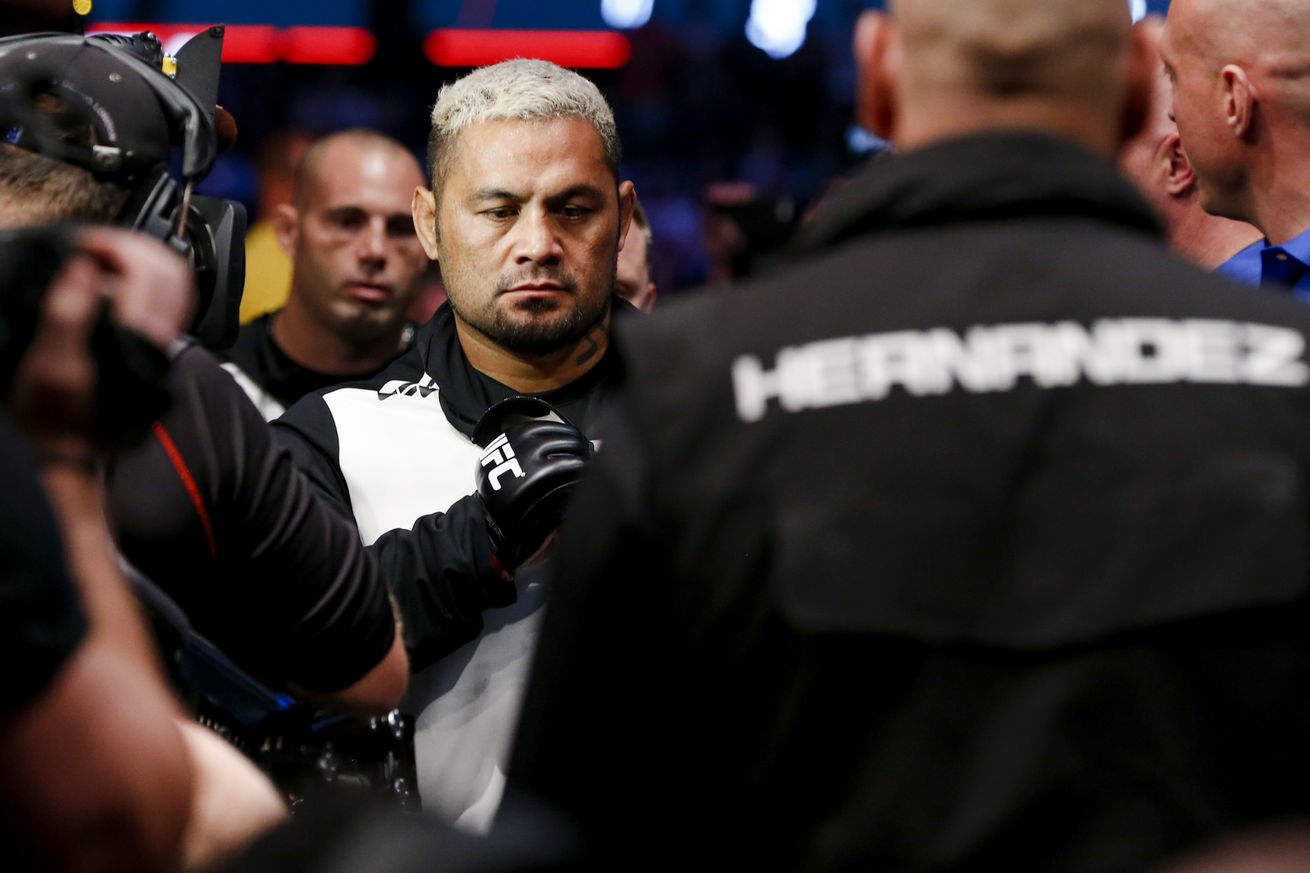
At a session of The United States Court of Appeals for the Ninth Circuit on Monday, the case of Hunt vs. Zuffa was brought forth for appeal by Hunt’s attorney Brian W. Boschee. The lawsuit, filed in 2016 and amended in June 2017, alleges the UFC, UFC President Dana White, and former UFC fighter Brock Lesnar conspired to allow Lesnar to compete against Hunt at UFC 200 with the use of performance-enhancing drugs.
Hunt’s team accuses the defendants of racketeering, fraud, battery and civil conspiracy, in addition to other claims, with Hunt seeking compensatory damages, declaratory relief, punitive damages, statutory treble damages and attorney’s fees.
At UFC 200, Hunt lost a unanimous decision to Lesnar, who was later announced as having failed a pair of drug tests taken in the lead-up and on the day of their fight. The bout was later overturned to a no-contest, and while Lesnar was fined $250,000 by the Nevada Athletic Commission, Hunt argued Lesnar should have forfeited his entire purse for UFC 200, which was a reported $2.5 million.
In February 2019, the majority of Hunt’s claims were dismissed by U.S. District Court (Nevada) judge Jennifer A. Dorsey; the following November, the last remaining charge, which accused the UFC of breach of the implied covenant of good faith and fair dealing, was also dismissed.
One of the main points that Boschee brought up during Monday’s appeal court session was that he believed Judge Dorsey, for the purposes of dismissing the battery claims, was mistaken in comparing Hunt signing on for a fight as having the same assumption of risk as a baseball player who might get struck in the head by a high-velocity throw from a pitcher.
“That analysis is just wrong,” Boschee said. He went on to argue that there were guarantees made on White’s part and that UFC contracts are meant to explicitly protect a fighter from facing an opponent who is benefiting from PEDs.
Representing UFC’s parent company Zuffa, LLC was attorney Jon Colby Williams, with Lesnar’s attorney David Olsen serving as co-counsel. Williams counter-argued Hunt’s claims “morphed” over time and that the fighter is just expanding on arguments that have already been dismissed by Judge Dorsey. This includes Boschee’s justifications for Lesnar being liable for battery and the UFC liable for aiding and abetting battery.
Williams stated it’s impossible for the UFC or White to guarantee that a fighter hasn’t ingested a prohibited substance, intentional or otherwise, and that based on Hunt’s signing of the contract, public statements made by Hunt in regards to the widespread use of performance-enhancing drugs in MMA, and conversations between White and Hunt, he “absolutely” consented to the conditions.
According to Williams, Hunt is basing an argument on assurances that were never included in the original bout agreement and that Hunt’s lawsuit does not include allegations of non-disclosure on the part of White.
Questioned by Judge Dean Pregerson on whether a fighter concealing PED-usage should fall under a reasonable assumption of risk, Williams said in no sport is any recipient of in-game damages going to be able to go back and seek liability from an organization.
Olsen added “all risks means all risks” in regards to Hunt’s bout agreement acknowledging the possibility of numerous negative outcomes – including death – to his health. Judge Johnnie B. Rawlinson questioned whether doping added a new dimension to the discussion, particularly since Hunt did not explicitly agree to fight someone on PEDs. However, Olsen countered that Hunt admitted in his previous complaint that he had already fought cheaters, that doping was a reality of MMA, and that he was suspicious of Lesnar doping ahead of their fight.
Boschee closed his argument by saying that it was inaccurate to compare Lesnar being caught for taking PEDs to an athlete accidentally having a banned substance in their system. He accused Lesnar of doping on purpose and placing Hunt in “a life-threatening situation,” just as a pitcher on steroids is at greater risk of severely injuring an opposing batter with an errant throw.
“One of the reasons that baseball tests so diligently for performance-enhancing drugs is because that situation creates a life-threatening possibility if you’ve got someone on performance-enhancing drugs that can kill someone,” Boschee said. “That’s what happened here.
“Mr. Lesnar took performance-enhancing drugs against the policies of the UFC and the Nevada Athletic Commission for the sole purpose of getting bigger, stronger, faster and hurting—essentially irreparably hurting my client. And that’s battery. And that UFC knew he was gonna do it, and they turned the other way, and that’s aiding and abetting battery.”
Monday’s appeal also included Hunt seeking reliance damages due to a canceled November 2017 booking opposite Marcin Tybura. Hunt was pulled from the booking by the UFC in relation to medical issues raised by Hunt himself in a revealing article he wrote for The Players’ Tribune months before the Tybura fight, but his team believes the change was motivated by Hunt’s ongoing legal battle with the UFC. They believe Hunt is entitled to compensation for training camp and travel expenditures.
The appeal now awaits a final decision on a date to be determined.
{feed:enclosure_href }
More...




